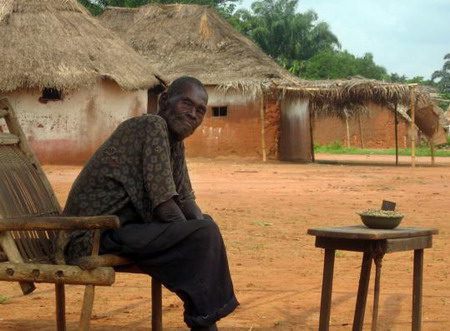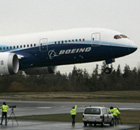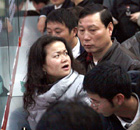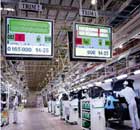Global General
Criticized UN-backed Congo operation to shut down
(Agencies)
Updated: 2009-12-17 10:37
 |
Large Medium Small |
|
 A man rests in the Democratic Republic of Congo, where a UN-backed Congolese military operation has deliberately killed 1,400 people this year, according to Human Rights Watch. [Agencies] |
UNITED NATIONS: A UN-backed military operation in eastern Congo in which government soldiers are accused of massacring hundreds of civilians will end this month, the top UN official in Congo said on Wednesday.
"Kimia II will be completed on December 31," UN special envoy to the Democratic Republic of the Congo, Alan Doss, told the Security Council during a meeting on the UN peacekeeping mission there, known as MONUC.
The United Nations has backed Congolese government forces in a nine-month operation called Kimia II against Rwandan Hutu rebels in Congo's east. The United Nations says it bolstered stability by supporting the operation but aid agencies had argued against UN support due to heavy civilian casualties.
Doss said the operation's main goal -- to disperse the rebels and weaken their ability to exploit Congo's mineral wealth -- "has been largely achieved although we do recognize that there have been very serious humanitarian consequences."
But the fight against the rebels, some of whom are suspected of participating in neighboring Rwanda's 1994 genocide, is not over, he said.
"The FDLR (Rwandan Hutu rebels) remains a potential threat and they will seek to return to their strongholds and punish the population for collaboration with governmental forces, if they are allowed to do so," he warned the 15-nation council.
Doss also praised the Congolese army's newly approved strategy, under which it would focus on holding ground recovered from the rebels and preventing attacks on civilians while going after areas where insurgents might have regrouped.
'Deliberate Killing'
Rights activists say Congo's ill-disciplined army, cobbled together from former rebels, militia groups and government loyalists, is one of the country's worst human rights abusers. The United Nations has documented wide-ranging abuses committed by the army since the offensive began in March.
Doss acknowledged to the council that with the integration of demobilized rebels into Congo's FARDC army, "the problem of discipline in the FARDC has worsened."
He said MONUC would continue to condition support for specific Congolese army units on their willingness to prevent violence against civilians by their soldiers. Last month, MONUC halted logistical and operational support for a Congolese army brigade it accused of killing at least 62 civilians.
A UN human rights rapporteur who recently visited Congo, Philip Alston, said in a statement there had been "insufficient planning for civilian protection, and civilians have been raped ... and massacred in revenge attacks by the rebels."











